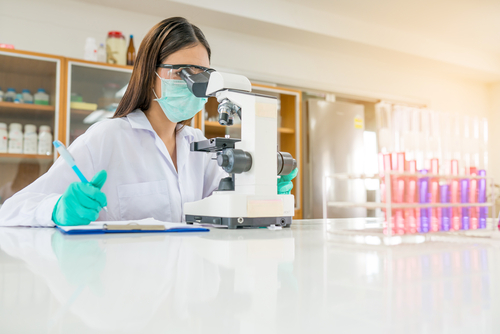BrainStorm Awarded $500K from ALS Association, I AM ALS to Support Biomarker Research

The ALS Association and I AM ALS have awarded BrainStorm Cell Therapeutics $500,000 to support an amyotrophic lateral sclerosis (ALS) biomarker study based on the biotechnology company’s pivotal trial into its NurOwn therapy.
Specifically, the combined grant — $400,000 is from the ALS Association — will be used to gain insights from data as well as tissue and blood samples collected from patients enrolled in the Phase 3 clinical trial (NCT03280056) that is measuring NurOwn’s safety and effectiveness.
As part of the award, BrainStorm agreed to share data and samples with the ALS community to potentially advance other ALS research, and to have trial results independently validated.
By assessing how NurOwn interacts with brain and spinal cord targets, the hope is the study produces a deeper understanding of crucial biomarkers associated with treatment response. A biomarker is any measurable body substance that changes over time, and that correlates with treatment response.
If it works the way it’s intended, the study is expected to help inform scientists’ broader understanding of ALS biomarkers.
“This grant to BrainStorm marks an important step forward in establishing how exactly NurOwn works in the body,” Calaneet Balas, ALS Association president and CEO, said in a press release. “This research is also important to our overall pursuit of identification and validation of ALS biomarkers. We hope NurOwn is ultimately proven effective in treating ALS, and we stand ready to support BrainStorm in its plan to apply for a biologics license for NurOwn.”
NurOwn is a cell-based therapy that uses mesenchymal stem cells (MSCs), which are extracted from a patient’s own bone marrow. These cells have the ability to generate different cell types. After extraction, MSCs are expanded in the lab and matured into cells that produce high levels of neurotrophic factors, which are compounds that promote nervous tissue growth and survival. The converted cells are then reintroduced into the body via an injection into muscles or the spinal canal.
A Phase 2 trial (NCT02017912) found NurOwn to be safe and to significantly slow disease progression in a subset of ALS patients with fast-advancing disease. The Phase 3 trial is evaluating the safety and effectiveness of three administrations every two months of NurOwn into the spinal canal, when compared with a placebo.
The Phase 3 trial’s chief goal is to confirm the effectiveness of NurOwn as measured by the amyotrophic lateral sclerosis functional rating scale (ALSFRS-R), a score of abilities such as swallowing, speech, handwriting, or walking.
Despite the COVID-19 pandemic, patient dosing in the trial is expected to be complete by next month. The study is fully enrolled with 200 participants across six U.S. sites. All patients have been given at least two of three doses. A summary of important findings will be announced later this year.
“This critical research study involves one of the largest and most robust clinical trial collectors of [cerebrospinal fluid] biomarkers,” said Chaim Lebovits, BrainStorm CEO. “Data generated from this study will increase our understanding of how NurOwn therapy impacts ALS disease progression, and may identify patients who benefit the most from this form of therapy. We also hope that this research study will benefit the broader ALS community as we collectively advance toward our shared goal of delivering much-needed treatments,” he said.
Danielle Carnival, CEO of I AM ALS, said the ALS community is at a pivotal time in terms of treatment research.
“We need to move with urgency in all of our efforts to deliver treatments and cures for ALS,” she said. “This biomarker research will help us more expeditiously understand the effectiveness of NurOwn, while possibly unlocking discoveries that provide clues for other promising treatments.”






